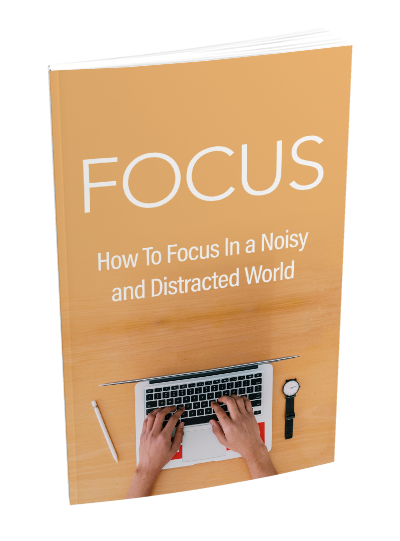Free Training & Career Tips... Subscribe to Get Weekly Career Tips

By Subscribing You are Agreeing to Terms and Conditions
The return of widespread heavy-stage load shedding across South Africa in recent weeks has caused more than its fair share of stress, anxiety and depression. With a flare-up of emotions experienced by most people ranging from disillusionment and sheer hopelessness through to total anger and indignation, stress, anxiety and depression naturally follow suit.
As South Africans, what we are facing is another ‘New Normal’ created by the strain of daily Stage 6 load shedding over and above the ‘New Normal’ created by the Covid-19 Pandemic. This has inevitably contributed to heightened levels of stress and anxiety. While we have lived with intermittent periods of load shedding over the past 15 years, this time around, added to the residual effects of the Pandemic, it appears to be much worse and is now taking its toll on the mental health of South Africans at large.

In and of itself, daily life is hard to plan as it is and in many cases, power outages come unexpectedly and daily load shedding schedules are often altered at a moment’s notice. Even after planned outages, the power is often not restored as expected due to failing infrastructure that cannot endure being constantly switched on and off. This unpredictability results in a feeling of being completely disempowered and out of control with the basic rhythms of everyday life. And for those who are anxious by nature, this only exacerbates the situation. Stress and anxiety and depression lead to exhaustion and the whole affair becomes a vicious cycle.
The impact of load shedding on the economy, the constant struggle to keep a business running and the disruption to traffic people are faced with daily when the power goes off all contribute to collective mental tension and exhaustion. Certain people feel that the underlying stress of not knowing if things will get worse or when this will end, like the Covid-19 Pandemic, translates into higher levels of anxiety and depression. This creates instability in the home and spills over into the workplace.
For many people, keeping our essential devices such as cell phones and laptops charged has become an obsession during sporadic, heightened periods of load shedding. Keeping the battery charged on one’s laptop results in some income, a failure to do so means the lack thereof. In many instances, even if one’s laptop is charged, one may not have a stable Internet connection due to poor transmission from cell phone towers during load shedding. Hence, the ability to work consistently and meet deadlines is severely compromised. This drives stress levels even higher since when one is not performing at optimal levels, this also leads to increased anxiety around job security.
However, notwithstanding the resulting socio-economic pressures that factor into the equation when there is widespread load shedding, there are also biological reasons why being in the dark is causing people to feel more stressed and depressed.
When we are suddenly plunged into darkness, most of us have experienced these sensations: our muscles tense, we gasp, and our heart suddenly starts beating faster. This is the body’s natural response when the brain perceives the threat of danger. At that point the brain sends alarm signals to the adrenal glands. Adrenaline, cortisol and noradrenaline are pumped into the body and blood flows into the muscles, heart and brain. This allows us to see more clearly, focus better, fight harder and run faster and is the typical fight or flight, survival response. The automatic behaviours that we exhibit when under the influence of adrenaline are instinctive and aligned to specific memory centres in the brain. This means that the anxiety response can develop into a learned behaviour that can be triggered by any slight changes in the environment that resemble previous circumstances where we were exposed to danger. When we are suddenly plunged into darkness as load shedding kicks in, our pupils rapidly dilate to enable us to adjust our vision to accommodate the darkened setting. The brain remembers this as a critical element of our previous fight or flight responses and therefore thinks that we are under threat. It informs our bodies that we are in danger and this manifests into an anxiety response in the absence of actual danger.
A popular theory concerning the onset of anxiety and mood disorders such as depression is that it is not the actual anxiety that triggers sleep disturbances but rather it is the other way round – the sleep disturbance causes anxiety and depression. Normal sleep patterns are influenced by factors such as:
A personal norm in terms of how many hours of sleep are required can be anything between 4 and 10 hours per night, as opposed to a one-size-fits-all standard of 8 hours per night.
The longer you are awake, the more tired you will be.
Your Circadian Rhythm is your sleep-wake pattern over the course of a 24-hour day. Melatonin is a hormone released by the brain in response to darkness and regulates body temperature to help us sleep properly. Sunlight, as well as lights from electronic devices, disrupt the body’s normal melatonin secretion. When we are plunged into bouts of load shedding darkness, our regular day and night rhythms in response to light and dark are completely overturned and our sleep times become erratic due to the sporadic timing of periods of load shedding. This can severely disrupt our regular sleep patterns and translates into sleepiness during the day, general fatigue, poor concentration and the inability to complete tasks. The consequences of disrupted sleep patterns result in a general dysfunction in the workplace, at home and in social settings and leads to increased anxiety and depression.
Copyright text 2024 by Business Optimization Training Institute.